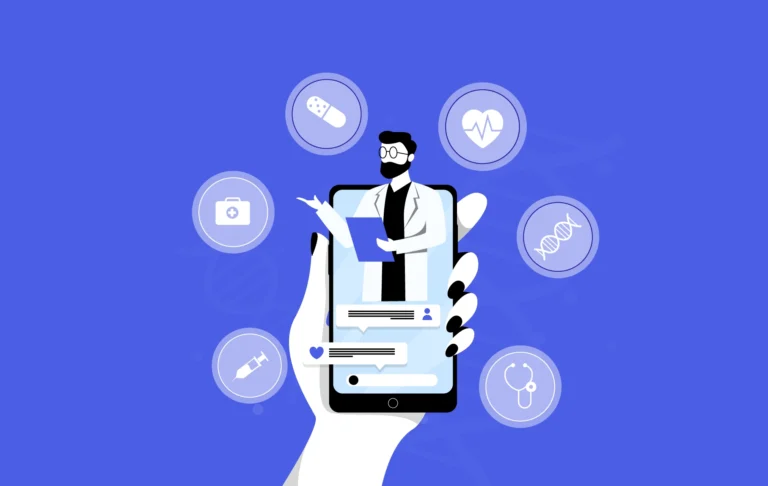In the quick-paced international of nowadays, technological advancements keep reshaping various elements of our lives, consisting of healthcare. One substantial location where generation is playing a crucial position is in the issuance of clinical certificates.
In Australia, the conventional technique of obtaining a clinical certificate often involves traveling to a doctor individually, which is an inconvenience for both patients and healthcare providers. However, with the arrival of digital structures and cellular programs, the panorama is converting swiftly.
This article delves into the role of the era in revolutionizing the issuance of medical certificates in Australia, exploring various structures and apps that facilitate a seamless on-line revel in.
The Traditional Process: Challenges and Inefficiencies
Before delving into the tech-pushed answers, it is important to understand the demanding situations associated with the conventional manner of obtaining scientific certificates in Australia. Historically, individuals in search of scientific certificates had to schedule an appointment with a healthcare expert, go to the hospital, and undergo an exam.
This manner no longer most effectively ate up precious time however additionally posed challenges for people with mobility issues or the ones dwelling in far off regions with confined access to healthcare centers.
Technology as the Game-Changer
The integration of generation into healthcare services has significantly stepped forward accessibility and efficiency. Online systems and mobile applications have emerged as recreation-changers, supplying a handy alternative to the conventional method. Patients can now acquire clinical certificates without leaving the comfort of their homes, streamlining the whole technique.
1. Telehealth Platforms
Telehealth platforms have won prominence, mainly in the wake of the COVID-19 pandemic. These platforms connect sufferers with healthcare experts through virtual consultations. Patients can talk about their symptoms, receive medical recommendations, and request a medical certificate, all from the benefit in their homes. Notable telehealth structures in Australia, together with Healthdirect and Doctors on Demand, have efficaciously bridged the distance among patients and healthcare vendors.
2. Dedicated Medical Certificate Apps
Several dedicated apps were advanced in particular for obtaining clinical certificates. These apps normally manual customers through a sequence of questions associated with their signs and health records. Based on the responses, the app generates virtual clinical certificates that may be shared without delay with employers or relevant parties. Apps like Tytocare and Instant Consult are gaining reputation for his or her consumer-friendly interfaces and brief turnaround times.
3. Online Healthcare Portals
Many healthcare carriers in Australia now provide on-line portals that allow patients to get entry to a number of offerings, including the issuance of clinical certificates. These portals permit patients to time table digital appointments, talk with healthcare experts, and receive virtual copies of their clinical certificate. This approach complements patient engagement and promotes a greater efficient healthcare transport device.
Benefits of Online Medical Certificates
The shift toward on-line medical certificates brings about severa blessings for each patient and healthcare carrier. Some key advantages include:
1. Convenience
The important benefit is the benefit offered to patients. They can request and acquire a clinical certificate without the want to tour or wait in lengthy queues at medical centers.
2. Time Efficiency
Digital structures and apps extensively lessen the time required for the complete system. Patients can acquire their medical certificate promptly, taking into consideration faster return to paintings or other activities.
3. Accessibility
Technology eliminates geographical limitations, making healthcare services greater available to individuals in faraway areas. This is particularly crucial for folks that may have problems gaining access to traditional healthcare centers.
4. Reduced Administrative Burden
For healthcare carriers, the adoption of virtual systems streamlines administrative techniques. Automated systems for clinical certificate issuance lessen office work, allowing healthcare specialists to cognizance of affected person care.
Challenges and Considerations
While the combination of technology into the issuance of clinical certificates brings numerous benefits, there are challenges and concerns that need to be addressed. These include:
1. Security and Privacy Concerns
Ensuring the security and privateness of patient statistics is paramount. Developers and healthcare providers must put in force strong measures to protect sensitive data and observe applicable privacy guidelines.
2. Digital Literacy
The achievement of on-line medical certificates systems depends on customers’ virtual literacy. Efforts should be made to make sure that people of all ages and backgrounds can navigate those structures conveniently.
3. Regulatory Compliance
Developers and healthcare carriers need to navigate the complex regulatory landscape to make certain that their structures follow Australian healthcare standards and rules.
Future Trends and Innovations
As technology continues to conform, the landscape of online medical certificates in Australia is probably to witness in addition improvements. Some capacity destiny tendencies encompass:
1. Integration with Electronic Health Records
Efforts are underway to integrate on-line scientific certification systems with electronic fitness data, developing a greater complete and seamless healthcare revel in for sufferers.
2. Artificial Intelligence in Diagnostics
The incorporation of synthetic intelligence (AI) within the diagnostic method may want to decorate the accuracy of on-line consultations, leading to extra dependable clinical certificates.
3. Wearable Technology
The upward push of wearable generation opens up possibilities for actual-time health tracking. Integrating wearable information into the medical certificates issuance technique ought to offer an extra holistic view of an affected person’s fitness.
Conclusion
The role of technology in the issuance of medical certificates in Australia is transformative, offering a more handy and efficient experience for both patients and healthcare providers. Telehealth systems, committed apps, and on-line healthcare portals have emerged as key gamers in this digital revolution. While challenges and considerations exist, ongoing innovations and regulatory variations are expected to similarly enhance the landscape. As we look towards the future, the combination of era is poised to play an excellent extra significant function in shaping the healthcare panorama in Australia and beyond.
